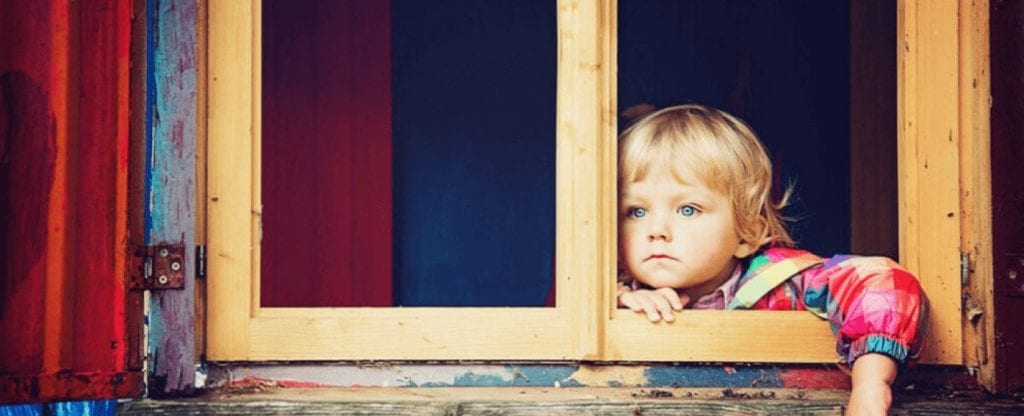
The death of a grandparent may be a child’s first experience of losing someone close to them. Processing the loss can be confusing, scary, and painful. And while there’s no easy way to navigate through the grieving process, it can be helpful to have some strategies in place when it comes to talking about loss, and what it means.
Many people reflexively avoid talking about death with a child, to steer clear of the profound questions it often creates, and to shield them from the raw emotions it can generate.
But regardless of how protective parents try to be, a child needs to come to terms with the loss of a grandparent who’s been part of their life. If given no appropriate language to understand what happened, and no space or emotional tools to comprehend the loss, children will process the death in ways that could ultimately lead to more confusion and pain.
For Courtney Bolton, PhD, a parenting and child development expert in Nashville,Tennessee, the process starts with language. Bolton spoke to Considerable at length about helping a child mourn the loss of a grandparent, and stressed the importance of communicating clearly as the process unfolds.
Experts in the field recommend avoiding false or misleading language.
According to Bolton, “It’s important to remember that younger children are very literal. So, the first step is to ensure that conversations are simple, honest, and developmentally appropriate.”
This is where a protective parent or grandparent may want to replace words like “dead” and “died” with “sleeping” or “passed away” to help soften the harsh finality of death. But numerous experts in the field recommend avoiding false or misleading language.
Eileen Morgan, a licensed clinical social worker based in Manhasset, New York, offered this clear advice: “Don’t use euphemisms!
“’Passed away,’ ‘passed on,’ ‘gone to a better place’ are all common mistakes adults use in explaining one of the most important life circumstances we will ever have to discuss with a child.”
Telling a child someone has “gone to sleep” is also a bad idea.
Telling a child someone has “gone to sleep” is also a bad idea, as it misleads the child into thinking there’s the possibility the person might wake up. It can also create fear of sleep for the child.
“Tell the truth!” Morgan said. “Children have a wonderful way of seeing right through a lie.”
Truth-telling is also the key for Sherrie MacLean, registered early childhood educator and national director of operations at Tiny Hoppers, a network of early learning centers in Canada. “Honesty is the best policy,” she said. “Making up stories about the grandparent taking a trip or seeing friends does not help the child in the long run. Children can understand and handle way more than adults would like to think.”
The use of clear, direct language should also extend to a discussion about what kind of changes the child should expect. If a child was accustomed to playing a particular game with their grandmother, or watching a specific movie with their grandfather, it’s worth gently reminding the child how that routine will change.
The use of clear, direct language should also extend to a discussion about what kind of changes the child should expect.
But it’s worth remembering that these routines, while forever changed, don’t have to end entirely, and that maintaining a connection through memories and rituals can be a healthy way of helping a child handle loss.
Or it can be as simple as continuing to share stories about the loved one.
As Courtney Bolton noted, “Having a story about that person to hold on to allows [children] more time to fully process the loss as their capacity to better understand death also develops.”
Providing space and opportunity for a child to participate in remembrance rituals — whether a funeral or a smaller family gathering — can also be extremely cathartic for a child who is properly prepared for the event.
In Psychology Today, Deborah Serani, doctor of psychology. author, and professor at Adelphi University, published a comprehensivelist of do’s and don’ts for parents helping their children deal with loss. She concurs that including space for children in rituals is important: “This will help them gain a sense of control of the traumatic loss.”
“Do let them find a way to say their own goodbyes,” Bolton added. “Funeral rituals provide closure for family members and allow us to grieve in community. Consider having a little family memorial that allows your child to tell their passed loved one about their favorite memory, what they loved about them and what they might miss. At any age, this can be cathartic.”
Eileen Morgan offers a simple but important reminder: “Review what a funeral is and what they will see/hear at it.”
And through it all, remember that children, like adults, grieve in different ways and on their own timeline. They may want to talk about it, or they may not. They may not cry right away, or ever. And it may take them a long time to fully accept the loss.
According to Bolton, “Research shows that young children will only process loss in small chunks of time. Although children grieve for short blocks of time, these can occur over very long periods of months or even years depending on the age of the child.
“It is important to be patient, answer questions as they arise, and pay attention to behavioral cues. Consistency and routine is key to make sure your child feels secure during this period of uncertainty.”
This article originally appeared on Considerable, a new media brand for people who are redefining what it means to grow older and looking forward to what’s next.
©2011-2025 Worthy, Inc. All rights reserved.
Worthy, Inc. operates from 25 West 45th St., 2nd Floor, New York, NY 10036